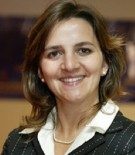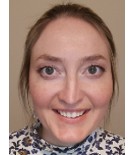Conference Program








Head of Certification IVD, TÜV SÜD Product Services, Germany

Global Medical Devices Technical Manager, SGS – SGS Belgium NV



CEO and Owner of Akra Team, Germany

Co-Founder, Managing Partner, Product & Strategic Business Development at avasis solutions GmbH., Germany
Innovation in the medical technology sector is being increasingly hampered by more and more regulatory requirements, having a massive impact on patient care. The digitalization of regulatory processes and technical documentation can increase efficiency in companies and free up resources for the development of innovative products. In order to accelerate digitalization and support a clear regulatory language for market access in Europe, the nonprofit organization Medical Device Knowledge Units (MDKU) e.V. is developing a standardized data model that will be made available to all industry stakeholders free of charge.
Sarah will present key challenges of the Medtech industry related to the technical documentation and how those challenges can be solved with digitalized processes. She explains the concept and benefits of a unified data model and why the data model is the foundation for digitalization – but also can simplify regulatory complexity through a clear regulatory language.
Finally, she provides an overview of the current status and the roadmap for further development of the extensive data model.


Senior Manager – Quality, Standards and Regulations at Philips, Belgium
The European AI Act, soon to be upon us, will redefine specific medical devices as ‘high-risk AI systems’, ensuring they are legal, ethical, safe, and robust. Koen Cobbaert will demystify this Act, provide an overview of its requirements, revealing its intricate interplay with existing medical device regulations, its profound impact on the medical device industry and areas of consensus and ongoing debates.

Director Governmental Affairs EU, ELEKTA | Nucletron, Netherlands


Policy Officer at European Commission, Belgium

Head of IVD Notified Body, BSI Group, The Netherlands


Manager Healthcare, GS1 Belgium & Luxembourg
- Introduction to GS1 as Issuing Agency
- Implementation of GS1 standards for Medical Devices. How to verify that the UDI-DI and B-UDI are valid? Latest information on Master UDI-DI.
- GS1 Belgium & Luxembourg solution to publish B-UDI and UDI-DI to the EUDAMED module Devices

Founder of QAdvis & EAAR Board Member, Sweden

President, Donawa Lifescience & EAAR Board Member, Italy

President, Donawa Lifescience & EAAR Board Member, Italy

Founder & CEO, Qmed Consulting & EAAR Board Member, Denmark


Director Verification & Registration MDSS, Germany
Set aside the never-ending implementation of EU Regulations, the former single market of CE marking has been facing major upheavals. Political decisions shaped a new regulatory landscape from the mountains (Switzerland – SWIXIT) to the shore (United Kingdom – BREXIT) in which all actors must react quickly to ensure continuous compliance. Being the written proof for compliance the technical documentation has to reflect such changes and new (local) requirements. As such the “Exit” dates of the United Kingdom and Switzerland harboured the risk for a significant impact on the availability of the devices.
Considering this and the input from the market, the regulators saw reason and granted transition periods or, even better, (temporarily) aligned the National requirements with the EU Regulations. But because the devil is in the detail a thorough study of the UK/CH legislations and gap analysis is mandatory to identify required adjustments within the existing technical documentation.
We will deep-dive into the legal background of the technical documentation “synergy alignment” between the EU, UK and CH. Gaps and hallmarks of the legislations will be identified and transition deadlines learned.
The audience will be able to
- tell the applicable timelines and transition dates for acceptance of the CE marking in the UK and CH.
- adapt UK/CH specific requirements to their existing technical documentations and to know the applicable references in the legislations.
- understand the obligations of the EU/CH Authorised Representatives and UK Responsible Person regarding the technical documentation.

Vice Director, Head of Regulation & Innovation, Member of the Executive Board, Swiss-Medtech, Switzerland
Switzerland became a third country to the EU on 26 May 2021 when the Medical Devise Regulation (MDR) came into force and the Swiss-EU Mutual Recognition Agreement (MRA) failed to be updated. Since then, all Swiss manufacturers must establish an authorised representative in the EU (EC-REP), and in return all foreign manufacturers need a Swiss authorised representative (CH-REP). The associated cost amounts to around 3% of the turnover.
More worryingly, a quarter of the foreign manufacturers (1200 out of 5000 companies) decided not to establish a CH-REP and to stop trading. As a result, 15% of the imported medical devices (60’000 of 400’000 products) are no longer available to Swiss patients.
Under the MDR, a further reduction of the portfolio looms and innovation is decreasing all over Europe. This is a bad development, also recognized by the Swiss parliament. In November 2022, it instructed the government to create the legal conditions to recognise medical devices from non-European regulatory systems in Switzerland, for example those authorised by the FDA.
After becoming a third country to the EU, Switzerland had to decide to find its own path. What will the future hold for the Swiss medtech industry and for Swiss patients?

UKRPA Chairman, Managing Director, Abnovo, UK
